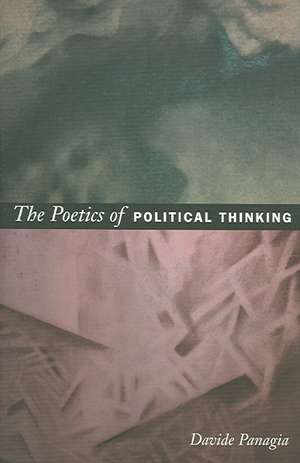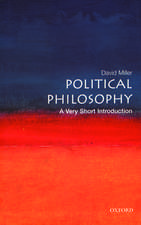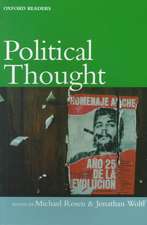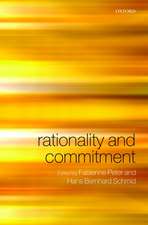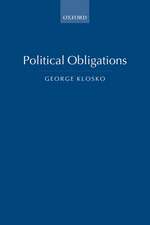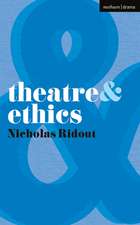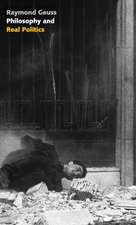The Poetics of Political Thinking
Autor Davide Panagiaen Limba Engleză Paperback – 14 feb 2006
Preț: 228.50 lei
Nou
Puncte Express: 343
Preț estimativ în valută:
43.72€ • 47.64$ • 36.84£
43.72€ • 47.64$ • 36.84£
Carte tipărită la comandă
Livrare economică 23 aprilie-07 mai
Preluare comenzi: 021 569.72.76
Specificații
ISBN-13: 9780822337188
ISBN-10: 0822337185
Pagini: 192
Ilustrații: 2 illustrations
Dimensiuni: 174 x 219 x 11 mm
Greutate: 0.27 kg
Editura: MD – Duke University Press
Locul publicării:United States
ISBN-10: 0822337185
Pagini: 192
Ilustrații: 2 illustrations
Dimensiuni: 174 x 219 x 11 mm
Greutate: 0.27 kg
Editura: MD – Duke University Press
Locul publicării:United States
Recenzii
A first book that reads like the work of a mature scholar, Davide Panagias beautifully written and tightly argued The Poetics of Political Thinking makes a significant contribution to political theorists who believe the problems with which they struggle can be further illuminated by approaches that draw together politics, ethics, and aesthetics. Theorists who have yet to appreciate the aesthetic dimension of political thought will be persuaded by Panagias efforts. Morton Schoolman, author of Reason and Horror: Critical Theory, Democracy, and Aesthetic Individuality
A theory of politics always entails a poetics, a commitment to the powers of language and image. By testing this principle on thinkers as different as Hobbes, Rawls, or Habermas, Davide Panagia offers strikingly new insights into the history of political thinking. Jacques Rancière, author of The Philosopher and His Poor
A theory of politics always entails a poetics, a commitment to the powers of language and image. By testing this principle on thinkers as different as Hobbes, Rawls, or Habermas, Davide Panagia offers strikingly new insights into the history of political thinking. Jacques Rancière, author of The Philosopher and His Poor
Textul de pe ultima copertă
"A first book that reads like the work of a mature scholar, Davide Panagia's beautifully written and tightly argued "The Poetics of Political Thinking "makes a significant contribution to political theorists who believe the problems with which they struggle can be further illuminated by approaches that draw together politics, ethics, and aesthetics. Theorists who have yet to appreciate the aesthetic dimension of political thought will be persuaded by Panagia's efforts."--Morton Schoolman, author of" Reason and Horror: Critical Theory, Democracy, and Aesthetic Individuality"
Notă biografică
Descriere
Illuminates the under-appreciated role of aesthetic concepts and devicessuch as metaphor, mimesis, and the sublimein structuring the thought of political figures from Thomas Hobbes to Jacques Rancière
